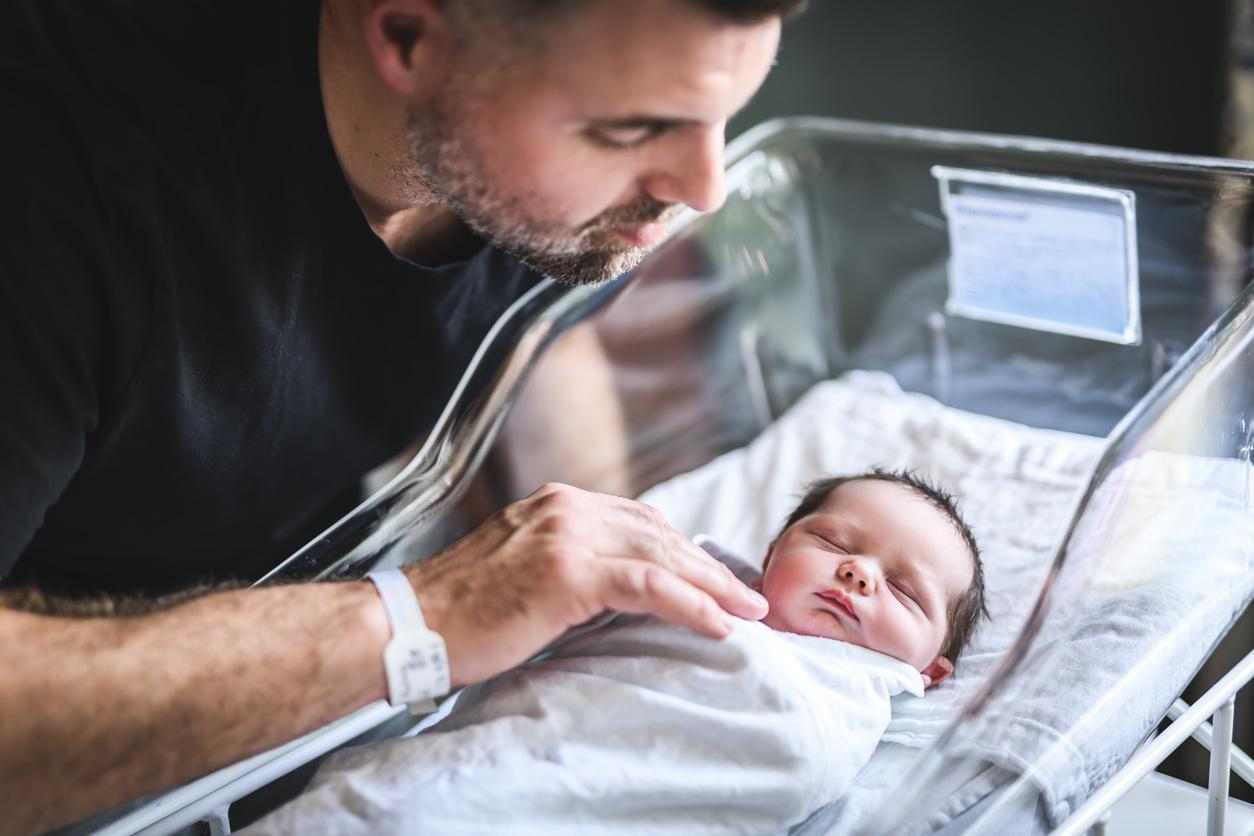While urologists see more and more men wanting a child after 50, these specialists remind us of the risks for the child.

The number of men over 50 who divorce, marry a younger woman and wish to conceive a child is said to be steadily increasing. In fact, according to the French Association of Urologists (AFU) meeting from today in congress in Paris, the number of consultations of men aged 50 and over, concerned about their fertility is increasing. Even if the latter have not always really tried when they consult, these men want to assess their chances and the risks associated with a new fatherhood.
Listen to Professor Stéphane Droupy, urologist at the Chu de Nîmes: “In England, we know that the rate of fathers over 50 has increased by 40%, we went from 6,000 births in 1998 to more than 8,500 births in 2010.”
“The question of fertility after 50 years also arises in other situations, such as the discovery of prostate cancer, in a man living with a younger woman, with a desire for a child,” explains Professor Stéphane. Droupy, urologist at Chu de Nîmes and head of the andrology and sexual medicine committee at AFU. They consult us in particular for pathologies related to the prostate that may have an impact on their fertility. When we prescribe certain treatments that are harmful to their fertility, we must be able to anticipate this desire for a child, and find solutions with them ”. However, urologists point out that it is important for these men to be correctly informed of the increase in certain risks, linked to the paternal age, for the child.
For men, too, the chances of conceiving decrease with age.
If the decrease in fertility with age is well known in women, what is less known is that the chances of childbearing also for men, diminish over the years. According to specialists, the probabilities of conceiving within six months decrease by 2% each year after the 24thth year of the father. And for a pregnancy within a year, they would drop by 3% each year. Experts also point out that when both members of a couple get older, it further increases the difficulty of conceiving.
In addition, the late paternal age would also influence the risk of miscarriage of his partner. Indeed, a French study carried out in 2008 on more than 21,000 artificial inseminations showed that the miscarriage rate was 10 to 15% for couples where the father was under 30 years old, against 35% when he was over. 40 years. “This increased risk of miscarriage is probably related to the fact that the sperm of aging men have more genetic abnormalities. A woman’s natural control system therefore more often leads these pregnancies to miscarriage, ”explains Professor Droupy.
Listen to Prof. Stéphane Droupy : ” The characteristics of sperm change with age, there is a decrease in the mobility of sperm, the volume of the ejaculate. But these parameters remain within the possible limits of fertility. “
Risks of autism or trisomy for the child
Although a great deal of data has been published on the desire to have a child in older women and its sometimes harmful consequences on the health of their children, we less often mention those of late fatherhood. However, in recent years, the scientific literature has identified the increase in several risks related to the age of the father.
In 2005, for example, a study reported an increased risk of Down’s syndrome from the age of 35. This same risk was multiplied by 3.2 if the man was over 50 years old. AFU specialists also specify that after 50 years, there is an increase in the frequency of certain genetic mutations. Genetic mutations that can even have a cumulative effect over several generations. Thus, the risk of the unborn child suffering from achondroplasia, for example, one of the most common forms of dwarfism, would be increased by 7.5 in fathers over 50 years old.
In addition, men between 50 and 55 years old would be twice as likely to have autistic children and 4.4 times more risk after 55 years. Finally, other recent studies have also reported an increased risk of having children with schizophrenia or bipolar disorder.
Listen to Prof. Stéphane Droupy : “ For assisted reproduction centers, this implies the need to choose the upper limit of the paternal age which today is not fixed by law, whereas for women it is 43 years. “
For the specialists of the French Association of Urology, it is therefore necessary today to better inform men about the risks induced by late fatherhood. It is important for men to be aware of this, especially when they do not specifically see a doctor to conceive. “There are nevertheless a certain number of men whom one does not see in consultation and who have a child project with a younger woman for example. As has been put in place for women, particularly with amniocentesis, men over 50 must also be informed of these risks, ”concludes Professor Droupy.
.














